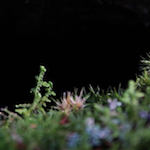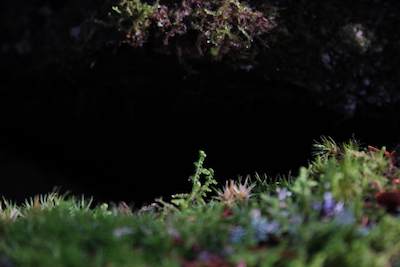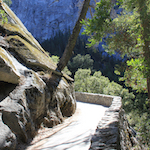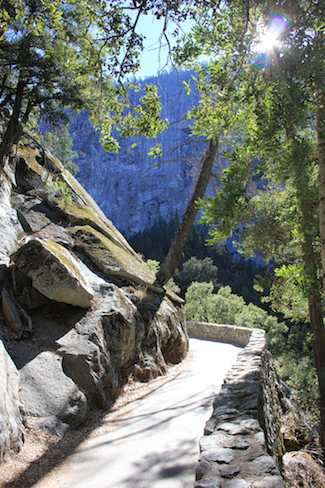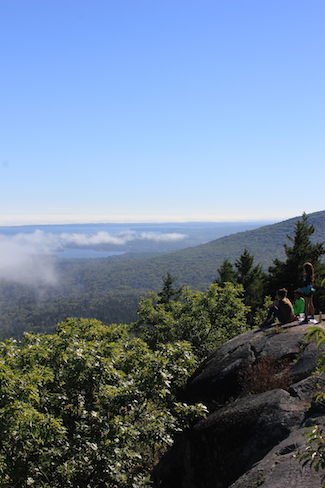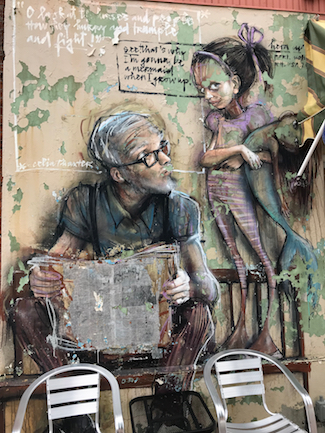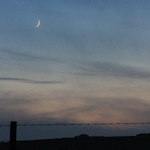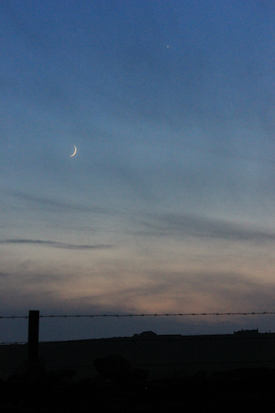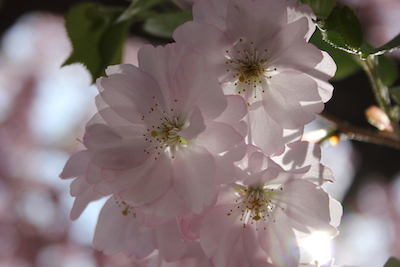By Amanda Painter
We’re in the midst of the Days of the Dead (a Catholic celebration of departed souls that has pagan roots, and echoes in many ancient indigenous cultures), and I have a question: How does one honor one’s ancestors when so much of what they helped to build is being dismantled, perverted, mocked and cut down?

View of October leaves from below; photo by Amanda Painter.
I’m not referring to past institutions that we’ve come to realize are systematically racist, sexist or in some other way oppressive; the process to recognize and dismantle those strikes me as being one of the reasons we’re all here at this time.
I’m talking about cultural advances that were made to lift up and empower as many people as possible, and which now appear threatened. I’m referring to past cultural lessons about things like fascism, which many people seem to have forgotten or somehow never learned in the first place.
If you are someone who chooses this time of year to honor your deceased ancestors, how do you bring your meditation and ritual intention into action? How might you choose to connect the past and your place in your familial lineage with serving the highest good for all concerned?
I have a couple thoughts on that, especially this week, in view of the pointedly anti-Semitic murder of 11 worshippers in a Pittsburgh, PA, synagogue (including one survivor of the Holocaust), and Pres. Trump’s declaration that he intends to issue an executive order ending birthright citizenship (which is protected by the Constitution). Trump’s refusal to denounce outright the violent actions of ‘white nationalist’ extremists, and his repeated, toxic, inflammatory language whipping up that demographic, is having visible — and measurable — effects.


